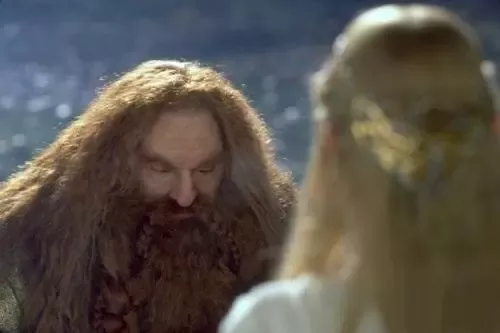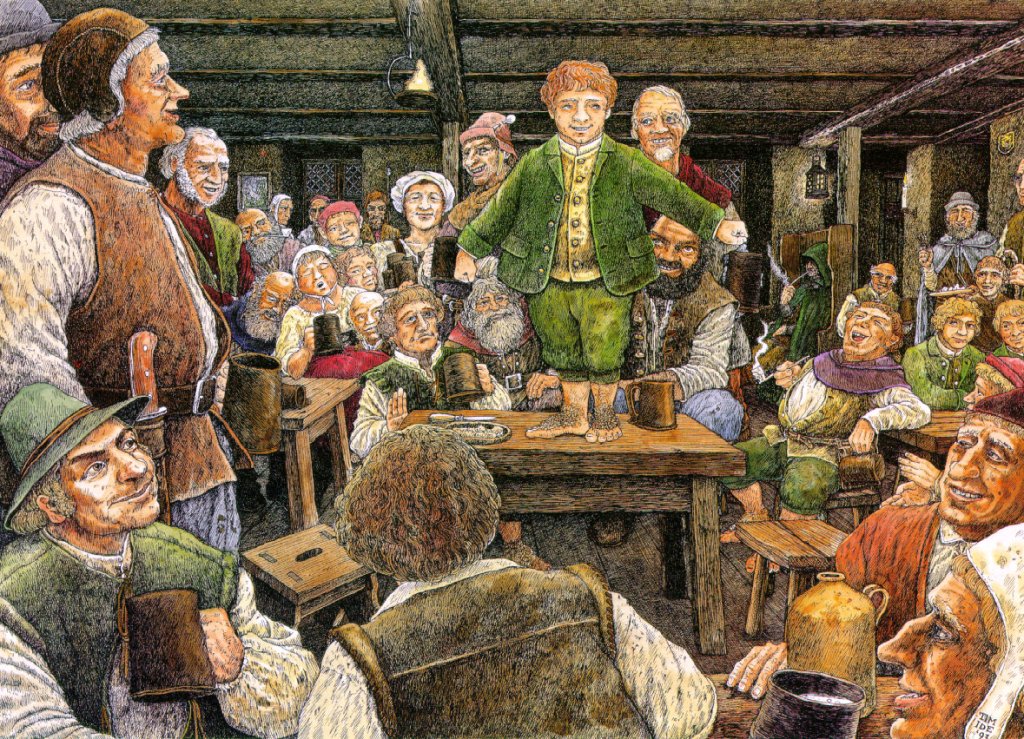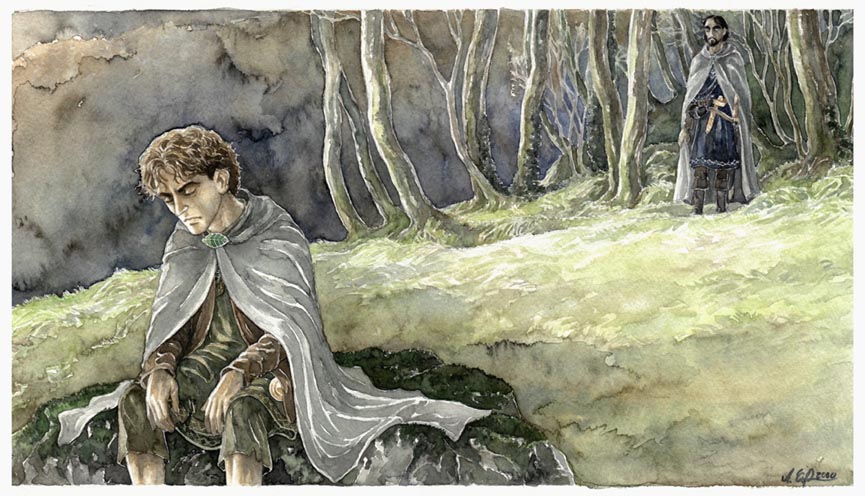The Two Towers by J.R.R Tolkien (Harper Collins 1991, 2007) pp. 763-766
Treebeard’s memory is very long indeed. In the very first making of Arda, the earth, Yavanna, the Vala who most loves things that grow, feared for the welfare of trees, seeing how vulnerable they were, how easily cut down. And the creatures that she most feared were Dwarves, the wielders of axes. She desired some kind of protection for her trees and so certain spirits entered some of the trees and Ents were born.

Farothial imagines Yavanna amidst her beloved trees.
And the oldest of Ents was Treebeard.
After Gandalf has completed his business with Saruman and cast him from the order of wizards he returns with the young hobbits and Aragorn, Legolas and Gimli to find Treebeard who has remained hidden during the debate. Treebeard welcomes Legolas warmly and looks forward to welcoming him as a guest to Fangorn. But then comes a moment of doubt and uncertainty. Legolas asks leave of Treebeard that he might bring Gimli with him.
“Hoom, hm! Ah now,” said Treebeard, looking dark-eyed at him. “A dwarf and an axe-bearer! Hoom! I have good will to Elves; but you ask much. This is a strange friendship!”
It was no mere coincidence in Tolkien’s mind that as Gimli bowed low, in Dwarf fashion, to greet Treebeard, his axe fell from his belt. It is almost as if the axe were speaking for itself, reminding Treebeard of Aulë’s words to Yavanna that the dwarves, his children, would have need of wood.
Although it was largely the Númenorians that destroyed the forests of Eriador there is only one recorded battle in Tolkien’s work in which it is known for certain that Ents took part and that is the Battle of Sarn Athrad in Beleriand during the First Age of Arda. A Dwarf army was returning from the destruction of the hidden Elven kingdom of Doriath and the killing of Thingol, its king, when they were assailed by a force commanded by Beren who had married Lúthien, Thingol’s daughter. Thingol was avenged by Beren and the trees of Doriath, a forest kingdom, were avenged by Ents. It is almost certain that Treebeard took part in that battle and he has not forgotten.
The friendship between Legolas and Gimli is very strange for they too have memories of a time when things were very different. For Gimli remembers how Glóin, his father, was once a prisoner in Mirkwood of Thranduil, king of that land and Legolas’s father. If Treebeard’s memory is long so is the memory of Dwarves, and in their case that memory is held within families. There may have been a kind of reconciliation between Thranduil’s people and the Dwarves of the Lonely Mountain due to their sharing in the Battle of the Five Armies as allies against the orcs of the Misty Mountains but suspicion and dislike remained.

The strange friendship of old foes.
It was Galadriel who created the conditions in which the strange friendship between Legolas and Gimli could be forged. Although Galadriel was of the Noldor, the people of Fëanor who first came to Middle-earth to avenge the theft of the Silmarillion by Morgoth, she came to have a deep love for Melian, the wife of Thingol, who was a healer in the deepest sense of that word, a healer of the earth and of its peoples. And while the Noldor were the makers of fortress cities like Gondolin and Nargothrond, the kingdom that Galadriel was to make was a forest land in Lothlórien, a kingdom like Doriath of old, and the king with whom she ruled it was Celeborn who was himself a son of Doriath. Galadriel too remembered the destruction by the Dwarves of that hidden kingdom and how Melian had departed, broken-hearted, from Middle-earth after Thingol’s death.
Perhaps it is a grace that works in the world during that part of its history that is recorded in The Lord of the Rings that love is awakened in so many hearts and strange friendships are forged. Galadriel’s heart goes out to Gimli when he stands before her grief-stricken by the death of Balin and the fall of Gandalf in Moria and love is awakened in Gimli because of this. Legolas becomes aware both of the compassion shown by Galadriel and by Gimli’s response to it and he enters into what is taking place. If Boromir brought his peril into Lothlórien Gimli brought his capacity to love and to be loved there. So was forged this strange friendship before which even the oldest of all the Ents now stands in wonder.

Galadriel awakens love in the heart of an angry dwarf.























